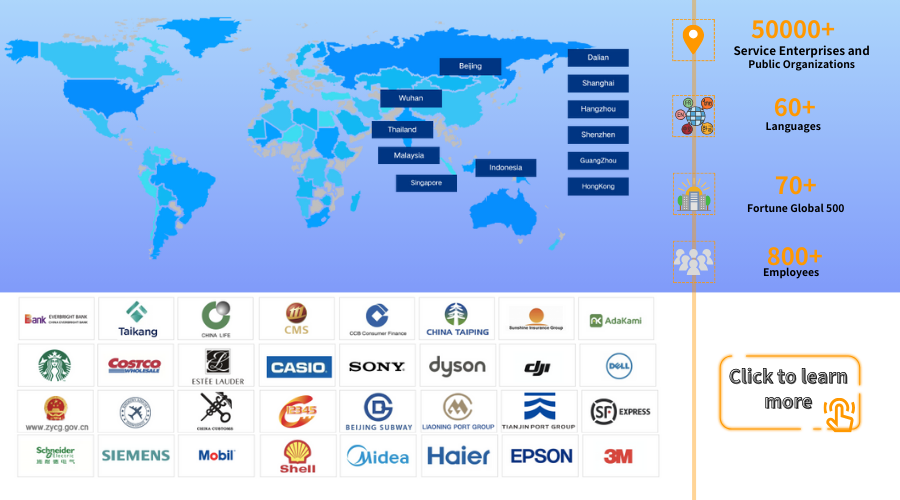Business chatbots: the definitive guide to leveraging chatbots in customer support
Article Summary:Chatbots are most successful when customer service leaders use them to empower agents giving live chat support. Learn how to foster agent-bot partnerships.
Table of contents for this article
- What is a business chatbot?
- How does a chatbot work?
- Benefits of chatbots that go beyond efficiency and cost savings
- Provide personalized, on-demand assistance to customers
- Improves employee's job satisfaction
- Catalysts for innovation
- Four questions to consider when evaluating a customer service chatbot
- How easy is the chatbot to configure and train?
- What's the type of conversations the chatbot can handle?
- How the chatbot integrates with your existing technical systems?
- How's the vendor's experience and level of support?
- Conclusion
Business chatbots have emerged as an innovative solution for businesses seeking to enhance their customer support capabilities. By leveraging artificial intelligence and natural language processing, chatbots automate routine customer inquiries and requests, freeing up support agents to handle more complex issues. When implemented strategically, chatbots can deliver substantial benefits for businesses while also improving the customer experience.
What is a business chatbot?
A business chatbot is a software application designed to conduct natural conversations to assist customers. Chatbots can be helpful tools for businesses to provide automated customer service, answers to common questions, and a 24/7 interactive experience. While still emerging technology, chatbots have potential to streamline some business operations if implemented properly.
How does a chatbot work?
Chatbots utilize natural language processing and machine learning to understand customer needs and provide helpful responses. Whether answering common questions or assisting with tasks, they can deliver personalized service while streamlining operations. With access to the right data and capabilities, chatbots show promise in efficiently addressing routine customer inquiries.
Benefits of chatbots that go beyond efficiency and cost savings
Provide personalized, on-demand assistance to customers
In terms of customer experience, chatbots can provide personalized, on-demand assistance to users anytime, anywhere. As chatbots become more sophisticated with capabilities like natural language processing, they are able to understand customer needs better and engage in human-like conversations. This level of personalized, around-the-clock support enhances the overall customer experience and builds loyalty. Chatbots are also helpful for handling repetitive questions and simple requests, freeing up live agents to focus on more complex inquiries that require empathetic human interactions.
Improves employee's job satisfaction
From an employee perspective, chatbots can be an asset that improves job satisfaction. By automating routine tasks, chatbots reduce workload pressures and burnout while giving employees more flexibility. This allows customer service teams to spend more quality time on value-added work. Chatbots also empower employees with self-service tools that provide easy access to information. Overall, chatbots augment human capabilities rather than replace them. They create a more engaging work environment and opportunities for upskilling employees to more strategic roles.
Catalysts for innovation
Beyond operational efficiencies, chatbots are also catalysts for innovation. They generate valuable usage data that provides insights into customer behavior patterns and pain points. With advanced analytics, this data helps organizations develop new products and services, personalize the customer journey, and test new ideas at scale. Chatbots also encourage innovation through their bot marketplaces where third-party skills and capabilities can be integrated to create new solutions. When viewed as platforms, chatbots unleash creative ways to solve problems and drive new business models.
Four questions to consider when evaluating a customer service chatbot
How easy is the chatbot to configure and train?
Chatbots need ongoing maintenance to keep their knowledge bases up to date and improve their ability to understand customers. Look for a platform that non-technical staff can use to add new responses and train the bot through an intuitive interface. Chatbots requiring complex coding skills will be difficult to maintain over the long run.
What's the type of conversations the chatbot can handle?
Basic bots may only be able to respond to simple FAQ-style questions through keyword matching. More advanced natural language understanding abilities are needed to engage in open dialogs and solve complex problems. Test out demo bots to evaluate their actual conversational capabilities.
How the chatbot integrates with your existing technical systems?
Customer service bots need to pull up customer profiles, order details, and other data from your backend databases. They may also need to transfer live chats to agents. Choose a platform with proven APIs and integration tools to ensure a smooth technical implementation. Bot solutions requiring extensive custom coding are risky.
How's the vendor's experience and level of support?
Reputable chatbot companies will have developed many bots across different industries and use cases. They also offer ongoing support to help with maintenance, new feature requests, and any performance or reliability issues. Consider vendor reputation, case studies, and references from other customers.
Conclusion
AI is crucial in providing the quick, convenient, personalized experiences that customers anticipate.
The issue is not whether to use chatbots, but rather where and how to implement chatbots effectively to better assist our customers.
By combining the capabilities of virtual agents with those of human agents, a business can develop a customer service chatbot that enhances loyalty and boosts profitability.
Take our AI Chatbot for a spin—for free—to see how it can work for your business.
The article is original by Udesk, and when reprinted, the source must be indicated:https://www.udeskglobal.com/blog/business-chatbots-the-definitive-guide-to-leveraging-chatbots-in-customer-support.html
AI ChatAI chatbotCustomer Service Chatbot

 Customer Service& Support Blog
Customer Service& Support Blog



